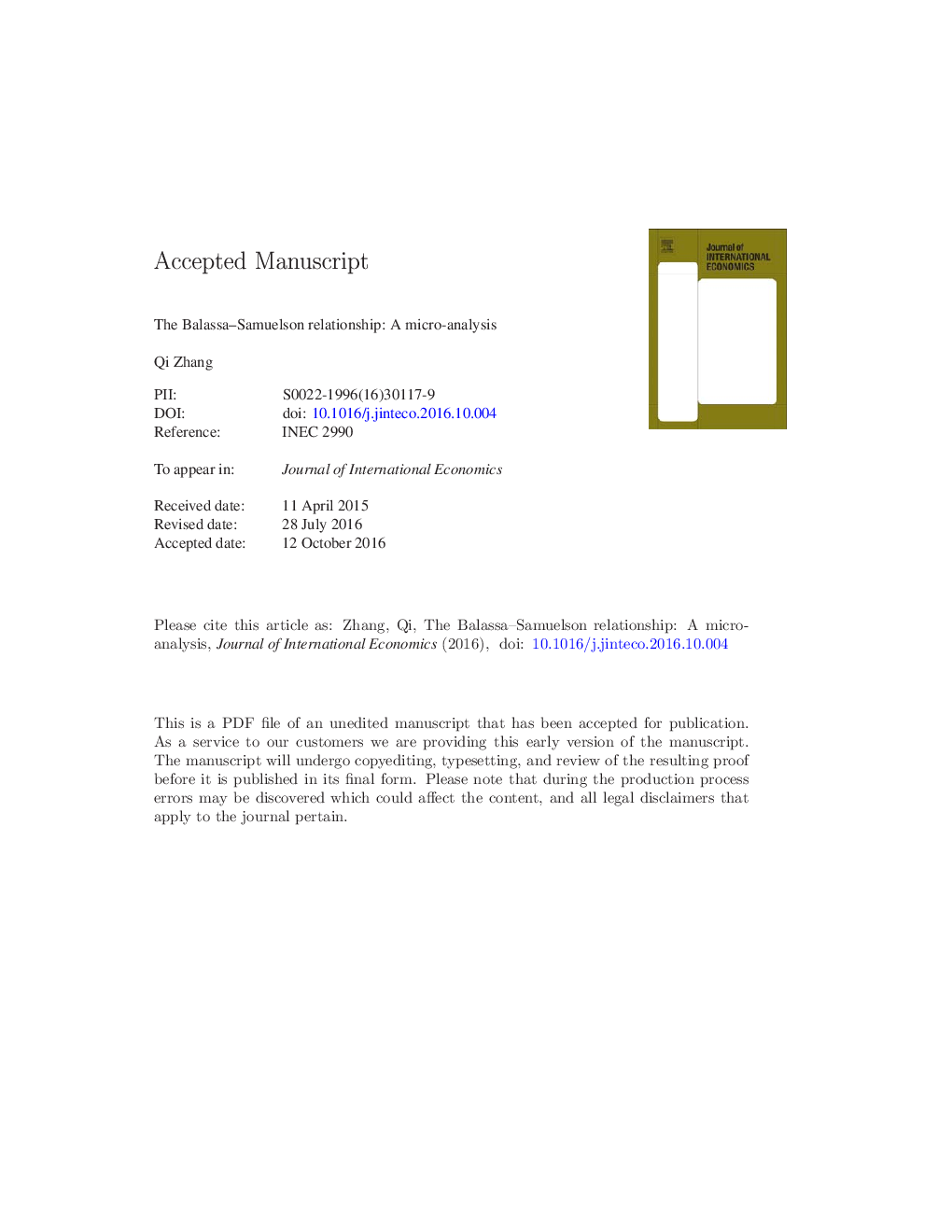| Article ID | Journal | Published Year | Pages | File Type |
|---|---|---|---|---|
| 5100934 | Journal of International Economics | 2017 | 68 Pages |
Abstract
The Balassa-Samuelson relationship, i.e. the positive relationship between a country's per capita income and its national price level, represents an apparent violation of Purchasing Power Parity (PPP) and is not expected to hold for manufactures according to the explanation of this relationship proposed by Balassa and Samuelson. This paper shows that at the level of the products used in constructing national price levels, the relationship is present in both 'services' and 'manufactures' and the specification of the relationship is different for the two. It further offers a new candidate explanation for the B-S relationship in manufactures, which is based on an appeal to product quality. This explanation yields a second, distinctive, testable prediction: controlling for per capita income, a non-monotonic relationship should exist between a country's income inequality and its national price level. The second prediction is shown to be consistent with empirical evidence. The explanation also implies that mismeasured quality exaggerates the B-S relationship and hence the observed cross-country income differences are likely to be underestimated.
Related Topics
Social Sciences and Humanities
Economics, Econometrics and Finance
Economics and Econometrics
Authors
Qi Zhang,
